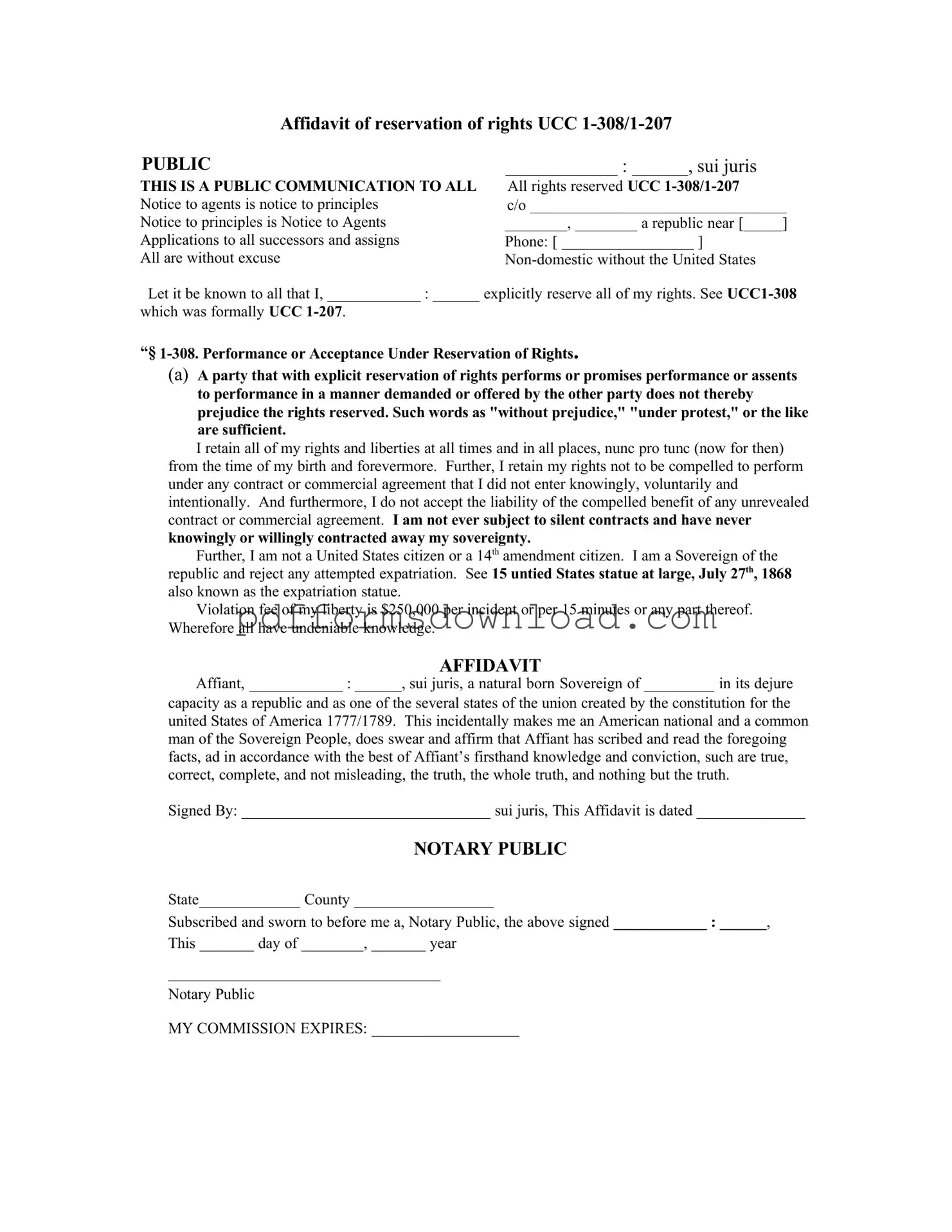What is the UCC 1-308 form?
The UCC 1-308 form, also known as the Affidavit of Reservation of Rights, is a public document that allows an individual to explicitly reserve their rights under the Uniform Commercial Code (UCC). This form is often used to assert that the individual does not waive any rights or liberties when entering into agreements or contracts. It is based on the principle that a party can perform under a contract while reserving their rights.
Who should use the UCC 1-308 form?
This form can be utilized by individuals who wish to assert their sovereignty and protect their rights in legal or commercial matters. It is particularly relevant for those who do not identify as U.S. citizens or who wish to emphasize their status as sovereign individuals. Anyone looking to reserve their rights in transactions or agreements may find this form beneficial.
What are the key components of the UCC 1-308 form?
The UCC 1-308 form includes several important elements: a declaration of the individual's reservation of rights, a statement of their sovereign status, and an affidavit that confirms the truthfulness of the information provided. It also requires the individual's signature, the date, and a notary public’s acknowledgment to validate the document.
Is the UCC 1-308 form legally binding?
How does the UCC 1-308 form relate to contracts?
The UCC 1-308 form allows individuals to perform under a contract while explicitly reserving their rights. This means that by signing the form, an individual does not relinquish their rights or accept any terms that they did not agree to knowingly and voluntarily. It serves as a safeguard against unintentional acceptance of obligations.
Can the UCC 1-308 form be used in any state?
The UCC is a uniform set of laws adopted by most states in the U.S., which means that the principles underlying the UCC 1-308 form are generally recognized across state lines. However, specific requirements for filing or using the form may vary by state. It is important to check local regulations and consult with a legal professional if necessary.
What is the significance of the notary public in the UCC 1-308 form?
The notary public's role is to verify the identity of the individual signing the UCC 1-308 form and to witness the signing process. This adds a layer of authenticity and credibility to the document. A notarized affidavit can enhance its acceptance in legal and commercial contexts.
What happens if someone violates the terms stated in the UCC 1-308 form?
The UCC 1-308 form includes a declaration of a violation fee for infringement on the individual's rights. Specifically, it states a fee of $250,000 per incident or per 15 minutes of violation. However, enforcing this fee may require legal action and is subject to the interpretation of the courts.
Where can I obtain a UCC 1-308 form?
The UCC 1-308 form can often be obtained from various online legal document services or through legal stationery stores. Additionally, templates may be available for download, but it is recommended to ensure that any form used complies with the specific requirements of the relevant jurisdiction.

